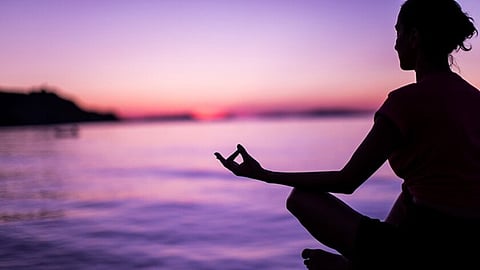10 Self Care Benefits You Didn't Know About Yoga
Yoga in its modern avatar is seen more commonly as another form of exercise for fitness and flexibility. There are several schools of yoga that teach different forms, and each has its own followers and benefits.
While the popularity of yoga continues to grow world-wide, in many of its new avatars, in its authentic form, it is a holistic approach to self care. Yoga is a system that deals with body, mind and spirit. The underlying principle of this ancient art and science is to connect and combine all the three aspects of human life so that the entire system remains healthy and it functions perfectly.
Unlike many medical and healthcare systems, yoga addresses the whole system. When there is illness, stress, anxiety, lifestyle diseases, psychological disturbance or psychosomatic condition, yogic practices include physical activity, breathing exercises, meditation, dietary recommendations and more.
Though much research and studies have been conducted on yoga the paradox is that there is still much to be learned about it.
In the wake of the Covid-19 pandemic, across the world people from all walks of life have understood the need to take individual responsibility for their own health and wellness. We have become more invested in long-term approaches to mental and physical health rather than in temporary and symptomatic treatments.
That’s where yoga fits the bill perfectly. It can be practiced by yourself in the comfort of your home or in a group in a studio, at the time of your choosing. You don’t need special equipment or accessories in most types of yoga except if you practice the BKS Iyengar school of yoga. The expenses are minimal, and the benefits are immense. Know more about yoga and self care resources at Rest & Digest.
How Yoga Helps You Look After Your Mental & Physical Health
Push The Boundaries: As you advance in the practice of yoga, you attempt more complex poses, try to achieve higher levels in meditation and learn to relax faster. These practices challenge you and take you above and beyond the standard goals. You learn perseverance, endurance and how to push the boundaries of your body and mind. These are great qualities when you face a crisis in your life.
Improve Relationships: Though yoga is mainly an individual practice, paradoxically the emotional benefits help you to have better personal and working relationships. You are less anxious and stressed, more relaxed and observant, and these improve your quality of life in general.
Smarter Nutritional Choices: With consistent practice of yoga, you can transform your eating habits. As you become more inward looking and self-aware, you can sense when your body is satiated, when to stop eating, and your instincts are sharpened about what’s good or bad for you. Your digestive system is more efficient. Consuming food more mindfully means that you don’t indulge in comfort eating when you’re stressed.
Self-Confidence Boost: Having a flexible and toned body, an alert and calm mind and a positive outlook does wonders for your self-esteem. Yoga gives you better sleep and improves your posture. Taken in combination, all these factors boost your confidence and provide you with the tools to have better relationships at work and home.
Self-actualization: Beyond the ordinary drudgery of work and your day-to-day routine, there is a higher purpose to life. Yoga helps you to strive towards achieving this greater goal of self-actualization. Meditation hones your spiritual qualities so that you connect with yourself and the world in more meaningful ways. This makes social interactions more satisfying and gives you more peace and inner strength.
Live In The Present Moment: Yoga asanas, meditation and pranayama breathing keep you firmly rooted in the present moment. During these practices you are grounded, and completely focused on the present moment. This experience is key to maintaining your emotional equilibrium in times of stress and crisis. You are better equipped at problem solving without being burdened by past trauma or anxieties about the future.
Lower Stress Hormones: It’s well-known that yoga promotes calmness and relaxation. But you may not know exactly how this happens. It is because yoga helps to lower the fight or flight hormones such as adrenaline and cortisol that are produced during stress. These hormones are released by the sympathetic nervous system. Deep breathing and conscious relaxation help to release the rest and digest hormones that remove stress.
Fertility Booster: Certain yoga poses such as the Bridge, Wall or Baddha Konasana help to stimulate the reproductive system. Additionally, deep breathing and meditation reduce anxiety if you’re trying to have a baby.
Similarity to Mental Health Counseling: Meditation and deep breathing help you to focus inwards and shut out all unnecessary external noise. This helps you to realign your inner self-talk, assess your problems in a more realistic way and be less judgmental about yourself and others. These are the goals of both mental health treatments and self care.
Post Traumatic Stress Disorder: Whether you’ve suffered an accident, life-threatening disease or war, you may have to bear the emotional and mental effects in the form of PTSD. While conventional drugs and counseling are the traditional approaches, yoga is an effective tool to combat the debilitating effects of post traumatic stress. It promotes calmness, mindfulness and gratefulness which help in your self care routine.

